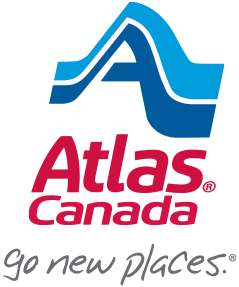Moving to or from Langford, British Columbia: Your Insider’s Guide from the Atlas Network
Thinking about moving to Langford, British Columbia? Located on the southern tip of Vancouver Island, Langford has grown rapidly over the past decade, attracting families, professionals, and retirees looking for space, modern housing, and everyday access to the outdoors—without losing proximity to Victoria.
Whether you’re relocating from another province or moving within British Columbia, a long-distance move to Langford comes with distinct considerations. From newer subdivisions and evolving infrastructure to island logistics and seasonal weather, successful moves here rely on planning and local expertise. Atlas Van Lines Canada brings decades of interprovincial moving experience, supported by agents who understand Vancouver Island access, timing, and neighbourhood nuances.
Meet Your Trusted Atlas Agents Serving Langford

Langford and the surrounding Westshore communities are supported by Atlas Van Lines Canada’s experienced agent network serving Greater Victoria and Southern Vancouver Island:
- AMJ Victoria
- MacCosham Inc.
- Premiere Van Lines – Victoria
These agents coordinate long-distance and interprovincial moves into Langford every year, managing ferry schedules, access planning, and tight move-in windows.
Atlas Agent Insight: “Langford’s growth is concentrated around new subdivisions and commercial corridors. Planning parking, street access, and timing early makes a real difference—especially for long-distance arrivals.”
Welcome to Langford: Suburban Growth with an Outdoor Backbone
Located just northwest of Victoria, Langford has transitioned from a small community into a thriving suburban city. Shopping centres, schools, and services are balanced by easy access to parks, lakes, and trail systems that shape how residents use the city day-to-day.
Life here is practical and community-oriented. Most residents organize their routines around work, school, errands, and recreation, with outdoor access built into everyday living rather than reserved for weekends.
Insider tip: Neighbourhoods near the Galloping Goose Regional Trail are especially popular for daily walks and cycling, and for easy access without relying entirely on a car.
Living in Langford: What Daily Life Feels Like
Langford’s population includes families seeking newer housing, professionals commuting into Victoria, remote workers, and retirees drawn by the mild coastal climate. Day-to-day life balances school schedules, work routines, and errands with consistent access to trails, lakes, and community amenities.
Local perspective: “Living in Langford means trails and green space become part of how you plan everything—from school runs to evening walks.”
Housing in Langford
Langford’s housing market reflects rapid growth and planned development, offering:
- Single-family homes in newer subdivisions
- Townhomes and duplexes
- Condos and apartments along major corridors
- Master-planned communities with integrated amenities
Demand can be strong in established and trail-adjacent neighbourhoods. Many long-distance moves involve coordinating flexible possession dates, which makes early planning with both your realtor and Atlas agent important.
Neighbourhoods to Explore

Each area offers a slightly different lifestyle:
- Bear Mountain – Master-planned community with golf, trails, and amenities
- Royal Bay / Langford Proper – Family-focused, near schools and shopping
- Glen Lake / Millstream – Established residential areas with trail access
- Westhills – Modern planning with parks and pathways
- Downtown Langford / Goldstream Village – Walkable core with cafés and local shops
Neighbourhood choice often comes down to commute tolerance, school planning, and how closely you want to live to trails or recreation areas.
Schools & Education
Langford is served by School District 62 (Sooke), along with Catholic and alternative education options. Ongoing population growth has driven continued investment in new schools and expanded capacity across the city.
Families relocating from outside the region should confirm registration timelines and catchment boundaries early.
Working in and Around Langford
Employment spans healthcare, education, professional services, retail, and trades. Many residents commute into Victoria or nearby municipalities, while others work remotely—taking advantage of Langford’s housing stock and growing infrastructure.
Getting Around Langford
Langford is primarily a driving city. Most residents rely on vehicles for commuting and errands, though transit connects key routes and cycling infrastructure continues to expand. Traffic patterns near trail crossings and commercial corridors are worth factoring into daily planning.
Lifestyle & Recreation
Outdoor activity is central to Langford life. Residents regularly take advantage of golf courses, lakes, hiking trails, cycling routes, and recreation centres. Community programming and parks support families, adults, and seniors alike.
Atlas Network Tip: “Moves near trailheads or lakes require careful planning for temporary parking and truck access. Coordinating early avoids delays on moving day.”
Discover Langford Like a Local

- Short trips to trails, lakes, and parks are built into daily routines
- Farmers’ markets, cafés, and community events as weekly touchpoints
- Seasonal weather influences commuting and parking habits
- Local side streets and shortcuts that simplify errands and school runs
What You’ll Need to Set Up When You Arrive
- Electricity & natural gas (BC Hydro, FortisBC)
- Internet & TV providers (Telus, Shaw)
- School registration and catchment verification
- BC Services Card for healthcare
- Vehicle registration and insurance updates
- Mail forwarding and address changes
Moving Logistics for Langford
Access & Parking
- New subdivisions may have narrow or angled streets
- Condo and apartment moves often require elevator or loading dock bookings
Seasonal Timing
- Winter months can affect loading and unloading
- Summer is peak season—booking early is recommended
Decluttering & Storage
- Long-distance moves benefit from reducing bulky items
- Atlas offers secure short- and long-term storage solutions
Special Considerations
- Outdoor gear such as bikes, kayaks, and skis should be professionally packed
Moving To or From Langford with Atlas Van Lines Canada

Atlas Van Lines Canada supports long-distance and interprovincial moves to and from Langford with:
- Professional packing and unpacking
- Coordinated national agent network support
- Flexible storage solutions
- Expertise in handling tight access, seasonal timing, and specialty items
Your Atlas agent ensures your move is organized, predictable, and tailored to your home and lifestyle.
Start Your Move to Langford with Confidence
If Langford feels like the right next chapter, Atlas Van Lines Canada is ready to help you move with clarity, experience, and trusted local support.











































